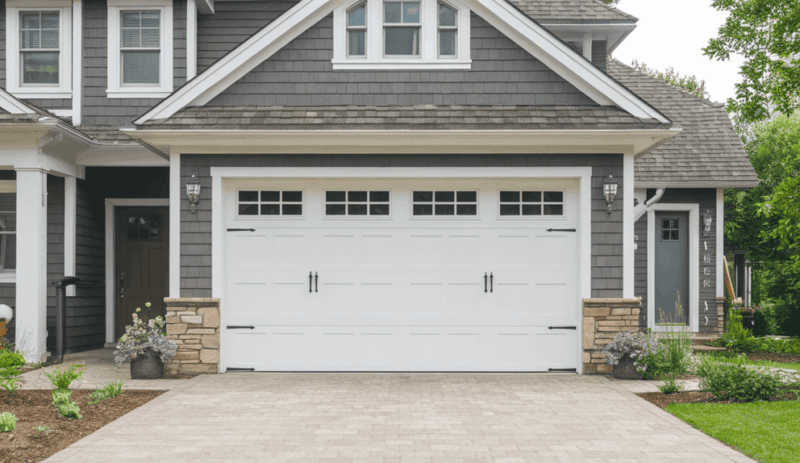
Scorching Texas summer, garage door suddenly stops working. Most openers can handle heat with proper maintenance. This guide will cover typical lifespans, heat challenges, and warning signs.
Understanding Your Garage Door Opener’s Lifespan
In the heat of Texas, the garage door opener fights a seemingly impossible battle against not just the warmest climate in the continental U.S. but also against a series of unprecedented and record-breaking heat waves. Even the most reliable residential garage door openers, which typically function for 10-15 years, may have their lifespan significantly reduced by Texas’s intensity of heat over the course of a summer.
Climatic components that live within garages—even shade-covered ones—seem to suffer an (im)perfect storm. The extreme summer temperatures I experienced when growing up in West Texas—often languishing 110 plus—almost assured that whatever mechanical components lived in the garage also lived a kind of short, calamitous life.
You’d be surprised how fast heat can break down oils, warp metal parts, and strain electrical systems. Most of the door problems I see in Dallas, TX involve heat-related wear that goes unnoticed until a complete failure occurs.
Warning Signs Your Opener is Struggling
Here is what might be amiss with your garage door opener. Pay special attention if you notice any of the following:
- Door movement is slow or jerky.
- Unusual grinding or straining noises are present.
- The unit operates intermittently on hot days.
- The remote control’s signal seems weak.
These symptoms aren’t just minor inconveniences—they’re your garage door’s way of signaling that all is not well.
Most people don’t think to look inside, where the internal mechanisms are working overtime during our brutal Texas summers. If you live in this historical region of warm temperatures, you need to pay attention to these early warning signs that your garage door might be heading for failure.
You May Like To Read: Who Offers Same-Day Garage Door Repair In Dallas TX?
Protecting Your Garage Door Opener in Texas Heat
Your opener’s best friends are shade and insulation. These practical plays will make your opener much better if you follow these strategies:
- Set up a garage door mechanism protective cover or shade
- Make sure the garage is properly insulated to reduce internal temperatures
- Regularly lubricate the garage door moving parts with high-temperature rated lubricants
- Check the weatherstripping of the garage door to ensure heat can’t infiltrate
Springs for garage doors are tightly wound and can be quite hazardous. It’s better to leave complicated maintenance to a trained professional if you do not have the training yourself.
When to Call a Professional?
There are some warning signs that need instant expert help:
- Noise when in use
- Quality of life suffering because of nonfunctioning door
- Potential safety hazard due to door not functioning
- Visible damage that necessitates repair
- Issues with the garage door opener itself
At Coopers Garage Doors, a multitude of heat-related garage door problems has passed before our eyes. A professional attempt at resolution usually means a check-up that involves plenty of steps, including:
- All-encompassing system diagnostic
- Lubrication of essential moving components
- Assessment of the electrical system
- Suggestion for remedy or substitution
Keep in mind that putting money into maintaining your garage door now can prevent you from having to spend a lot of money to replace it later. The professionals in your area who work for Quality Overhead Door know exactly how the heat we experience in Texas affects garage door systems.
Pro tip: Book your yearly upkeep during the temperate months to sniff out any potential problems before the peak summer sizzle hits.
Final Words
Recap of key heat survival strategies, empowering homeowners with practical knowledge, and encouragement to be proactive about garage door maintenance.


